Naive science-aficionados will often think of observation as the ultimate arbiter between rival scientific theories. Their view holds that observation is theory-neutral - it is objective - and therefore ideal in deciding between rival theories.
Theory-ladenness, on the other hand, states that observation is not theory-neutral: it's - wait for it - theory-laden!
So take this datum for instance:
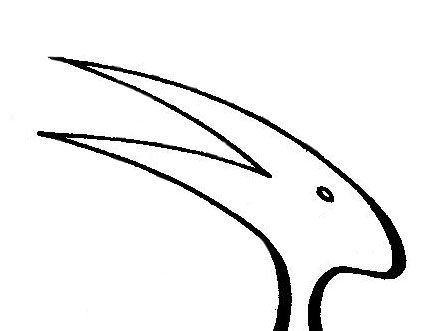
Theory-ladenness states that, depending on your background knowledge, or the theory from which you view the datum, you might view it as an antelope or a pelican. People who support the antelope-theory might view the datum as follows:
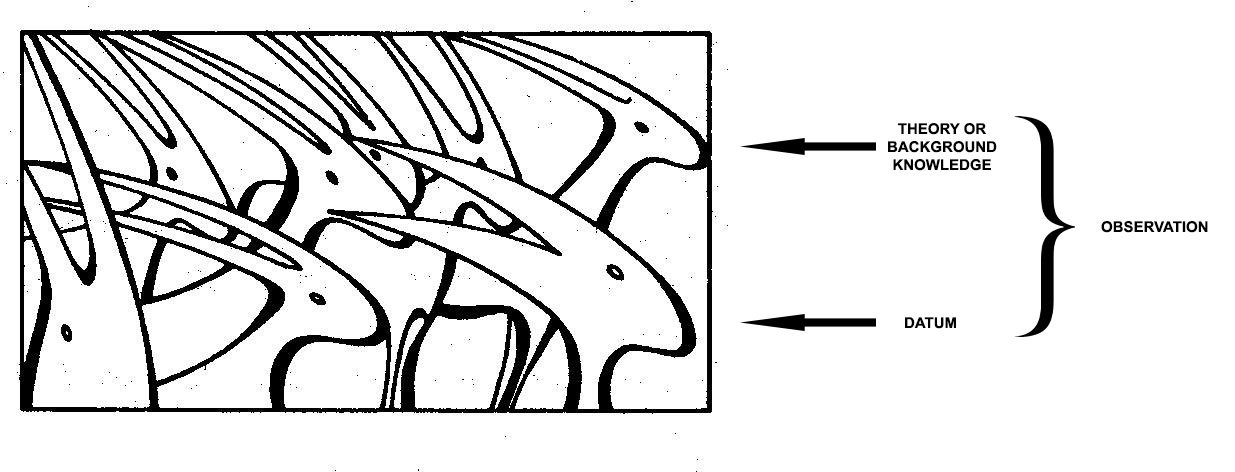
People who support the pelican theory might see it like so:
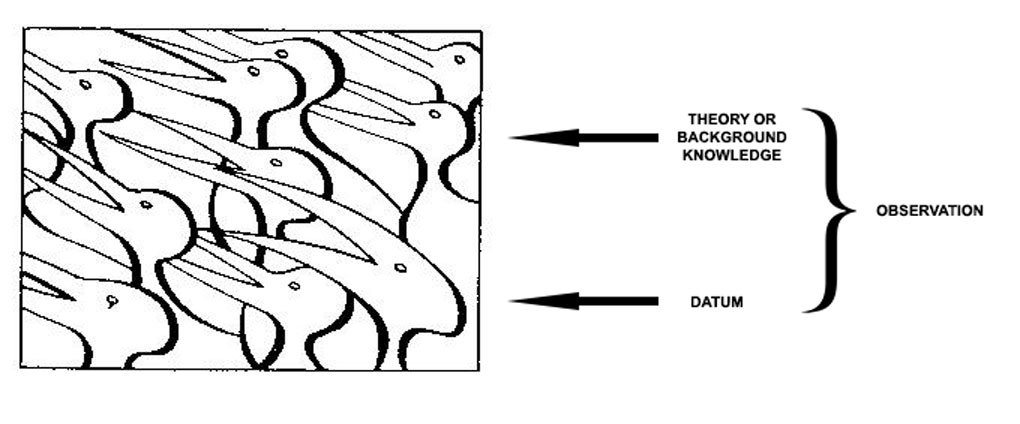
Note that only the "background knowledge" (or theory) differs: the datum in both pictures is the same. Here, let me darken it for ya:

So the observation cannot decide between the two theories, since the theories decide what you observe. This is what in philosophy of science is called incommensurability.
Can objectivity in science be salvaged? Of course. But this is not the subject of this post!
What's all the preamble?
In my 2011 book, I took the philosophy of science's theory-laden view, re-baptized it as the value-laden view, and applied it to all of life. The appropriation of the term wasn't so much a matter of similarity, as it was an effort to tie a novel idea to something well-known in order to lend the former more credibility.
Following are some areas in which the value-laden view of life can be applied.
The value-laden perception of life
You have to view something as useful before you can see it. For instance, you can only perceive a rock if you are thinking of it as something that you might trip over, or as something that might be used to help build a stone wall, or as something out of which a statue can be carved, etc. You cannot perceive an object unless it is through at least one guiding value. If an object cannot be used in any way, then it is very likely that, for us, it will not even exist: since there would be no evolutionary benefit in perceiving this object, there would be no evolutionary pressure to perceive it.
The value-laden psychology of life
Suppose I have a desire (a desire for food, say), and I perceive an object that will satisfy this desire (an apple, say). It is a psychological given that people do not reason as follows: "I am hungry. This apple will satisfy my hunger. Therefore I desire to eat this apple." Nor is it the case that a desire seizes you as soon as you complete a similar line of reasoning. Rather, a desire seizes you as soon as you perceive the object. Further, other mammals have minimal reasoning capacity, and yet they desire food just as much as we humans do, if not more. If objects are perceived through our values, that would explain the instantaneous nature of desire. Our values paint the objects of our perception, and by the time the objects have reached our consciousness, the paint has already dried. Reasoning only occurs as an afterthought, or when there are conflicting desires or insufficient data. The value-laden theory of life explains why in real life the objects are seen as desirable, rather than reasoned as such.—Most often, a thing's desirability is perceived, not deduced.
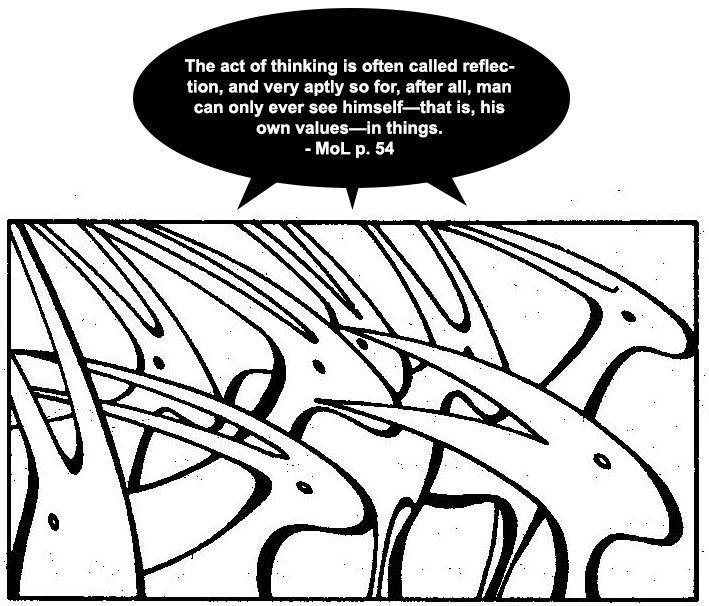
The value-laden language of life
Are there any terms that are purely descriptive? Are not all words accompanied by a quantum of approval or disapproval? If it is true that a human being cannot subsist without values, then can he ever use terms that are purely descriptive? Instead, it seems to me that a word would not even have meaning for a person unless he assigned a value to it. A word that is merely descriptive is incomprehensible.
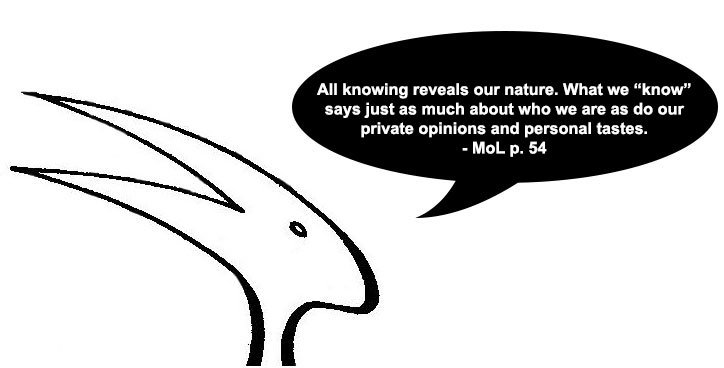
The value-laden public language of life
Because language is shared, it represents a middle ground, a compromise, between different values. For this reason language alienates us from our values. To some extent we are always in conflict with our language, precisely because it does not make our values a matter of self-evident tautology. “Murder” is to an extent synonymous with “wrong.” But “atheist” is not understood by everyone in the same way, which causes friction. But aside from these rare cases, because we use the same words to communicate, our differences often go unnoticed. Because language is to a large degree neutral between different human values, it is thought to be neutral between different values period, and therefore it is thought to be objective. But since a language can only exist in creatures who share some common set of values, language cannot be objective.
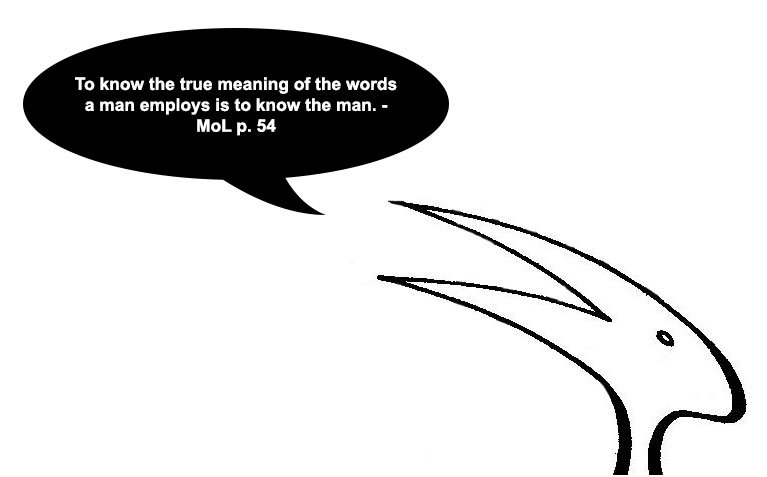
The curtain falls
This completes the 7th installment of the Meaning Of Life series. In case you missed the other episodes:
Part 6: I Am Therefore I Harm
Part 5: Nietzsche vs Christianity: Are Christians Nihilists?
Part 4: Can we desire death?
Part 3: Are nihilists being honest when they say life has no value?
Part 2: Does death make life meaningless?
Part 1: Is it possible to be a nihilist?
Next episode will be titled 'Against Subjectivism' - just in case you thought any of the above meant reality is up for grabs!
Let's end this by adding some playful color to this monochromatic post!

